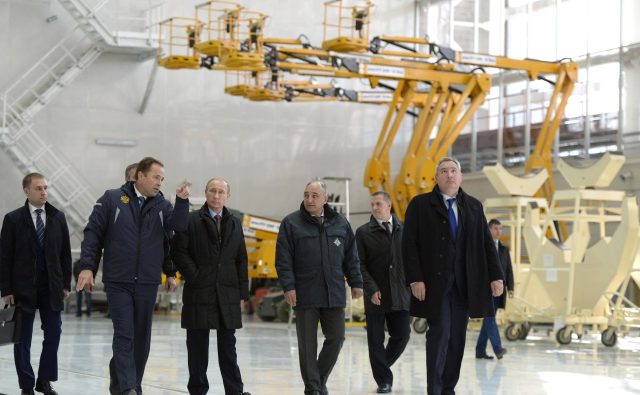
Vladimir Putin, center, and Dmitry Rogozin, far right, tour Russia's new Vostochny Cosmodrome in October 2015. (credit: Kremlin)
On Saturday, the Russian space program lost the Luna 25 spacecraft, a relatively small vehicle that was due to land on the Moon this week. After a problem with the spacecraft's propulsion system, instead of entering a low orbit around the Moon, it crashed into the lunar surface.
The Russian mission to the Moon was one of several spacecraft that were to attempt a landing on the Moon in the next six months, alongside probes from Japan, India, and the United States. In this sense, Russia is just one of many nations participating in a second space race back to the Moon, alongside nations and private companies alike.
But unlike NASA, China, India, and several companies in the United States and Japan, the Luna 25 effort does not presage the coming of a golden era of exploration for Russia. Rather, it is more properly seen as the last gasp of a dying empire, an attempt by the modern state of Russia, and President Vladimir Putin, to revive old glories.
No comments:
Post a Comment